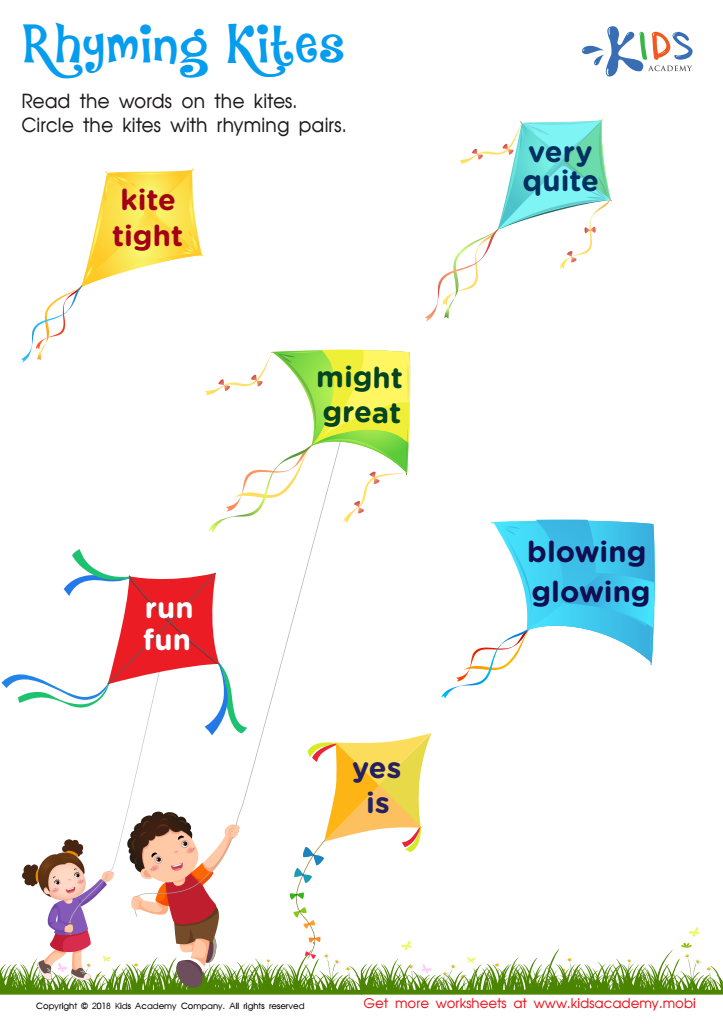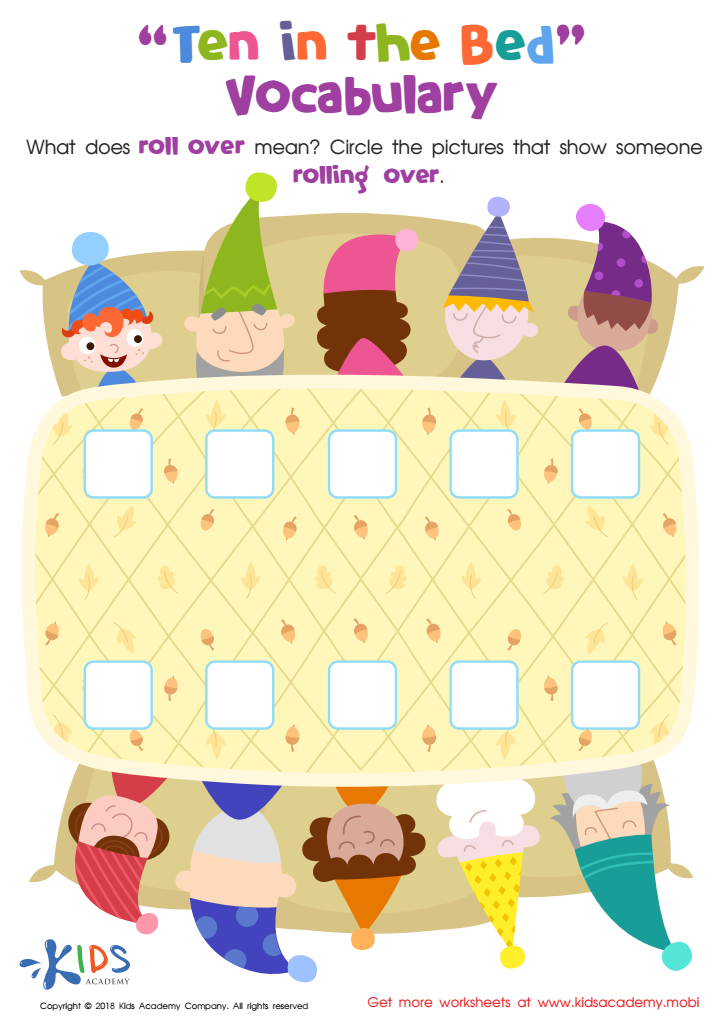Rhyming skills Building Vocabulary Worksheets for Ages 4-9
3 filtered results
-
From - To
Enhance your child's vocabulary with our Rhyming Skills Building Vocabulary Worksheets designed for ages 4-9. These engaging and educational activities help young learners recognize and produce rhyming words, a key step in language development. Featuring fun themes and colorful illustrations, our worksheets make learning to rhyme easy and enjoyable. Through repetitive exercises and creative challenges, children will strengthen their phonemic awareness and build a robust vocabulary. Perfect for classroom or at-home learning, these worksheets are a fantastic resource for parents and educators aiming to boost kids' reading and listening skills. Start your child's rhyming journey today!


Rhyming Kites Worksheet


Ten in the Bed: Vocabulary Worksheet
Rhyming skills play a crucial role in building vocabulary for children aged 4-9, significantly contributing to their language development and literacy growth. Firstly, recognizing and generating rhyming words enhances phonological awareness, which is the ability to discern sound patterns in speech. This skill is foundational for decoding words during reading, a key component of literacy. When children engage in rhyming activities, they practice recognizing both familiar and new words, expanding their vocabulary through playful learning.
Moreover, rhyming encourages children to focus on word structures and sounds, reinforcing spelling patterns. As they learn that certain sounds correspond to specific letter combinations, their ability to spell and read words accurately improves. Through rhyming, children also develop listening skills, which are essential for effective communication.
Engaging in rhyming songs, poems, and games also makes learning enjoyable and memorable, creating a positive association with words and reading. This positive experience can lead to a genuine interest in language, inspiring a lifelong love of reading. Lastly, the repetition found in rhyming helps solidify their understanding and retention of new words, making vocabulary building more effective.
In sum, fostering rhyming skills is a fun, engaging, and highly effective way to boost a child's burgeoning vocabulary, setting a strong foundation for future literacy success.

 Assign to My Students
Assign to My Students































